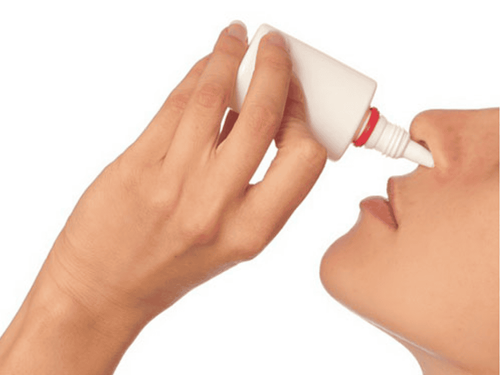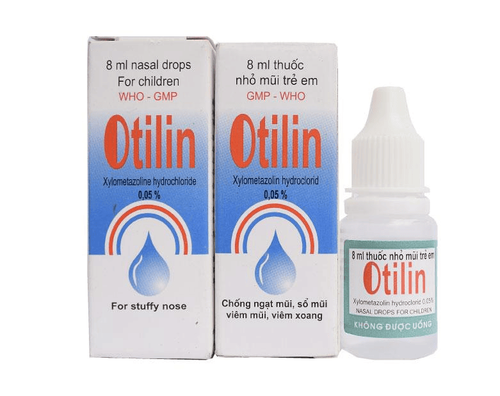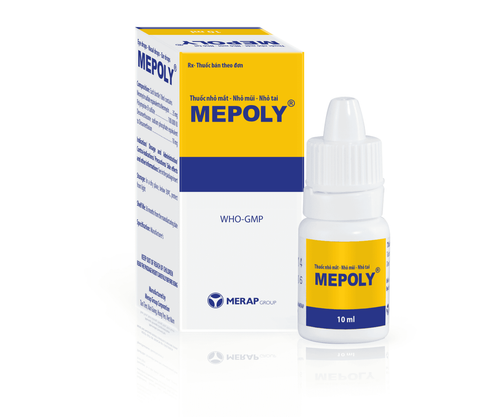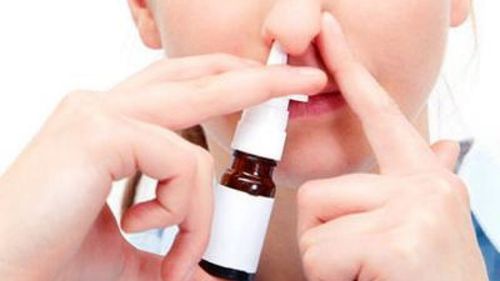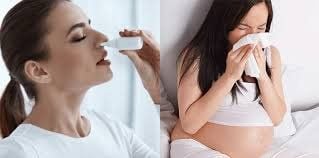This is an automatically translated article.
The article was professionally consulted by Pharmacist Huynh Xuan Loc - Faculty of Pharmacy - Vinmec Central Park International General HospitalPregnant women are special subjects who need to be careful while taking the drug to ensure the safety of both mother and baby. In fact, mothers often wonder and worry when they have to take medicine during pregnancy, which is often to treat cold symptoms, stuffy or runny nose. Medication is not always necessary and not all drugs can be used by pregnant women, the following tips can help "pregnant mothers" be healthier and more secure during pregnancy.
1. Rhinitis in pregnant women?
Pregnant women or adults in general are susceptible to symptoms of sneezing, runny or stuffy nose. These symptoms are usually caused by a cold or rhinitis.
Colds: manifestations include cough, runny nose, sneezing, sore throat...rarely fever. It is usually caused by a virus and goes away on its own after 3 to 7 days; Sometimes symptoms can last up to 2 weeks after recovery. Patients only need to use common symptom-reducing drugs, however, they also need to be cautious and pay attention to the aggravating symptoms of the disease such as high fever, prolonged duration, anorexia or difficulty breathing... When experiencing symptoms such as: Therefore, the disease may have progressed to bronchitis, pneumonia ... need to be examined and treated at medical facilities. Allergic rhinitis: is an inflammation of the nose caused by allergens such as airborne dust, pollen, grass, house dust or animal dander, and molds in the environment. Symptoms include itchy nose, sneezing, runny or stuffy nose, watery eyes sometimes painful itchy throat, ears ... To avoid symptom onset, it is necessary to avoid contact with allergens. . Pregnancy rhinitis: A type of rhinitis that occurs during pregnancy, usually in the last 6 weeks (or before) and clears up within 2 weeks of giving birth. Rhinitis of pregnancy is considered a separate form of rhinitis, not caused by allergies, infections or colds. About 20% of pregnant women experience this condition. The cause is unknown, but may be due to an imbalance of hormones (such as estrogen) during pregnancy.
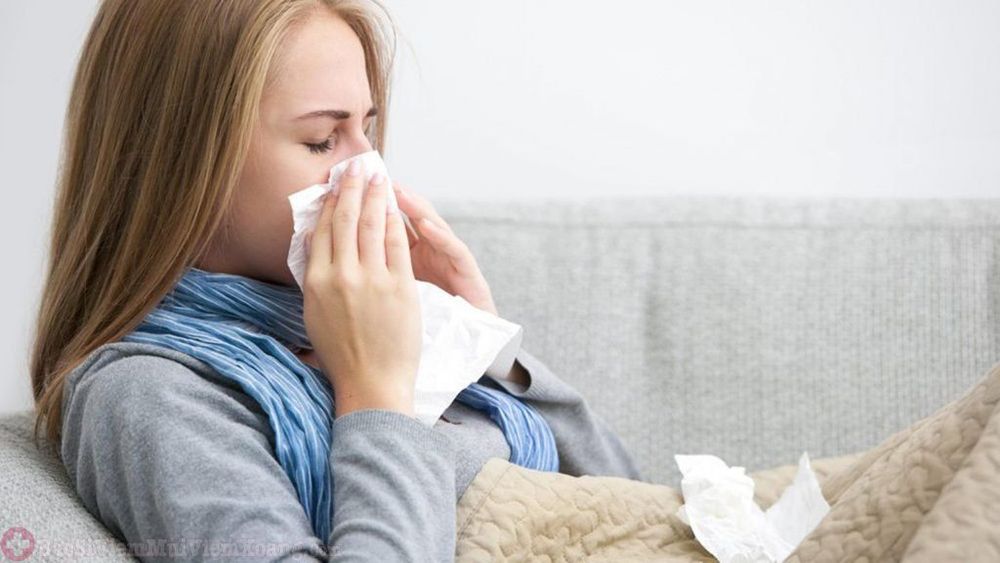
Bà bầu bị ngạt mũi là do viêm mũi dị ứng hay viêm mũi thai kỳ thì đều không trực tiếp ảnh hưởng đến thai nhi.
2. What nasal drops and sprays can be used by pregnant women?
All drugs used for “pregnant mothers” must always be carefully selected based on the need to use the drug and the safety of both mother and baby. In all cases, pregnant women should visit a suitable doctor or consult a doctor or pharmacist before taking the medicine. In some common, non-serious cases, the following medications, which are often available over-the-counter in pharmacies, can be used by pregnant women.
Regular nasal spray: Some nasal spray products containing isotonic saline (Sterima, Neilmed Nasamist, Humer, ...) are safe options to help spray, clean the nose, reduce irritation, runny nose. or stuffy nose. These ingredients are safe, not absorbed into the body and can be used for a long time to prevent and relieve symptoms of rhinitis. Corticosteroid-containing nasal sprays (such as mometasone, budesonide, beclomethasone ...): Highly effective especially for allergic rhinitis, helping to relieve symptoms of nasal congestion and postnasal drip (causing cough, itchy throat). The drug should be used at the lowest effective dose and for a limited duration.
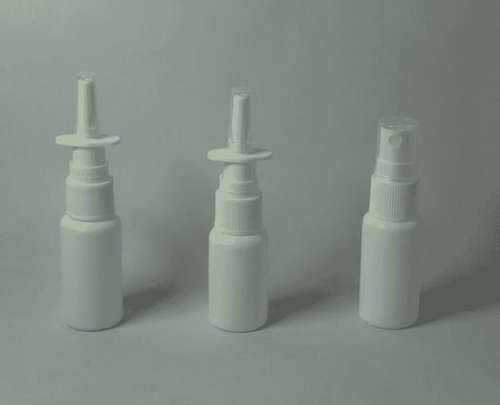
Thuốc nhỏ mũi dành cho bà bầu bị viêm mũi dị ứng
Decongestant sprays (containing oxymetazolin, xylometazolin): Decongestant sprays can provide temporary relief from severe stuffy nose. However, the drug should only be used for a short period of time, eg 3 days or less, and should only be used when other options are inadequate or ineffective. With long-term use, patients are at risk of drug dependence, without benefit. In addition, oral antihistamines: to help reduce irritation, runny nose ... are also selected when nasal sprays and nasal drops do not achieve the desired effect. Drugs such as chlorpheniramine (1st generation, causing drowsiness) or loratadine, cetirizine (2nd generation, less drowsy) may be used.
3. Some notes when using nasal drops and nasal spray for pregnant women
Pregnant women should be careful when taking the drug. Here are some notes when using nasal drops, nasal sprays for pregnant women:Always consult your doctor or pharmacist before taking medicine. This helps to ensure the safety of mother and baby as well as minimize the use of unnecessary drugs during pregnancy. Go to a medical facility if symptoms persist, do not go away even after taking common medicines or when strange symptoms such as fever, shortness of breath, rash appear... appear. presently. Avoid buying and using prescription drugs, drugs of unknown safety, unknown effects, or buying on the advice of others. Particular caution should be exercised with oral drugs or drugs that are advertised or advertised for strong, immediate effects,

Mẹ bầu không nên tự ý sử dụng thuốc, tránh gây ảnh hưởng đến thai nhi
To register for examination and treatment of ENT disease at Vinmec International General Hospital, you can contact Vinmec Health System nationwide.
Please dial HOTLINE for more information or register for an appointment HERE. Download MyVinmec app to make appointments faster and to manage your bookings easily.
References:
UptoDate, Recognition and management of allergic disease during pregnancy, 2020,
W. Steven Pray, Gabriel E. Pray, Self-Care of Rhinitis During Pregnancy, 2014,
MORE
Relief of Rhinitis Symptoms Allergies during pregnancy Is it okay if pregnant women have allergic rhinitis? Allergic Rhinitis Treatments




